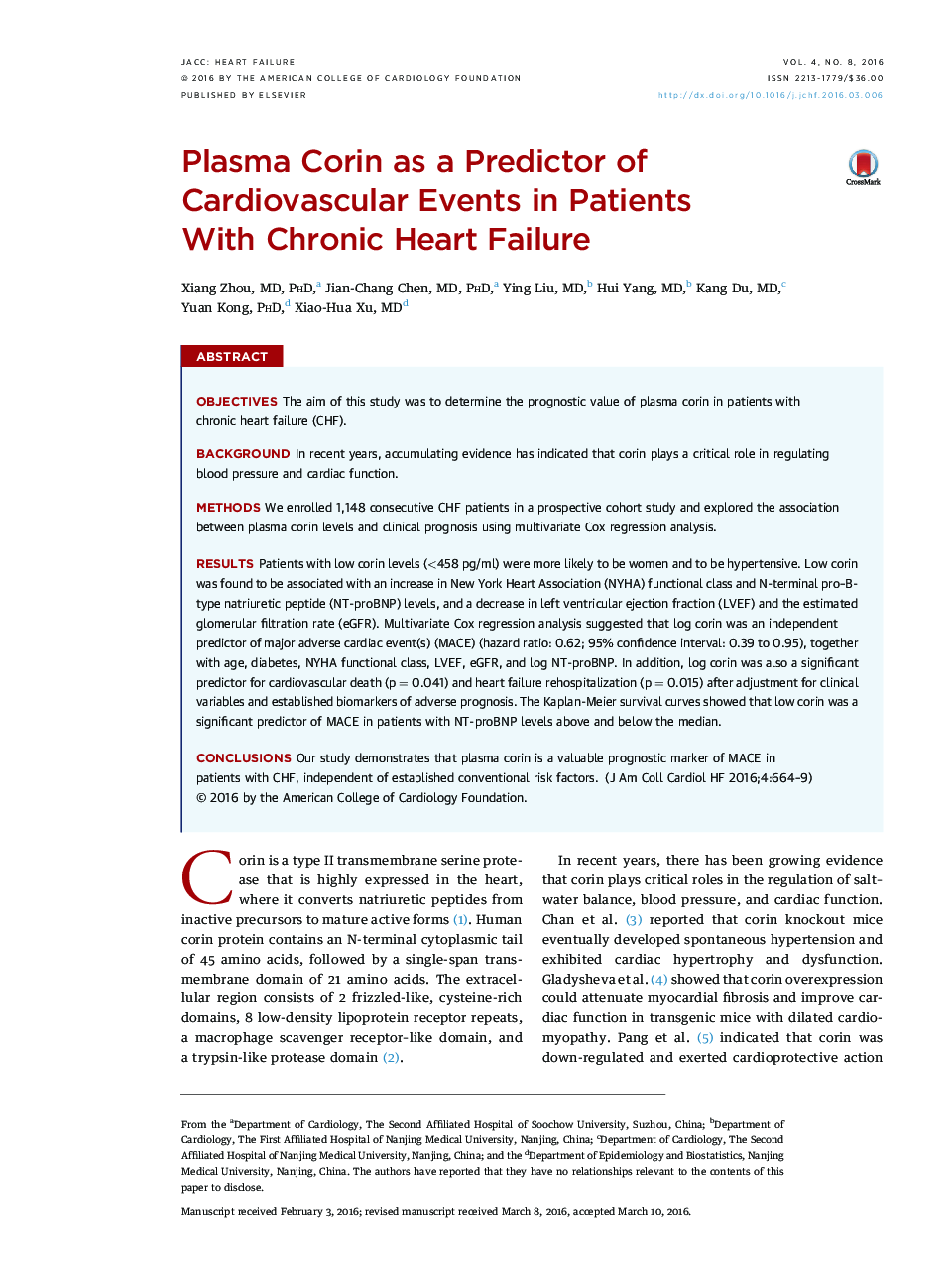| Article ID | Journal | Published Year | Pages | File Type |
|---|---|---|---|---|
| 2942322 | JACC: Heart Failure | 2016 | 6 Pages |
ObjectivesThe aim of this study was to determine the prognostic value of plasma corin in patients with chronic heart failure (CHF).BackgroundIn recent years, accumulating evidence has indicated that corin plays a critical role in regulating blood pressure and cardiac function.MethodsWe enrolled 1,148 consecutive CHF patients in a prospective cohort study and explored the association between plasma corin levels and clinical prognosis using multivariate Cox regression analysis.ResultsPatients with low corin levels (<458 pg/ml) were more likely to be women and to be hypertensive. Low corin was found to be associated with an increase in New York Heart Association (NYHA) functional class and N-terminal pro–B-type natriuretic peptide (NT-proBNP) levels, and a decrease in left ventricular ejection fraction (LVEF) and the estimated glomerular filtration rate (eGFR). Multivariate Cox regression analysis suggested that log corin was an independent predictor of major adverse cardiac event(s) (MACE) (hazard ratio: 0.62; 95% confidence interval: 0.39 to 0.95), together with age, diabetes, NYHA functional class, LVEF, eGFR, and log NT-proBNP. In addition, log corin was also a significant predictor for cardiovascular death (p = 0.041) and heart failure rehospitalization (p = 0.015) after adjustment for clinical variables and established biomarkers of adverse prognosis. The Kaplan-Meier survival curves showed that low corin was a significant predictor of MACE in patients with NT-proBNP levels above and below the median.ConclusionsOur study demonstrates that plasma corin is a valuable prognostic marker of MACE in patients with CHF, independent of established conventional risk factors.
